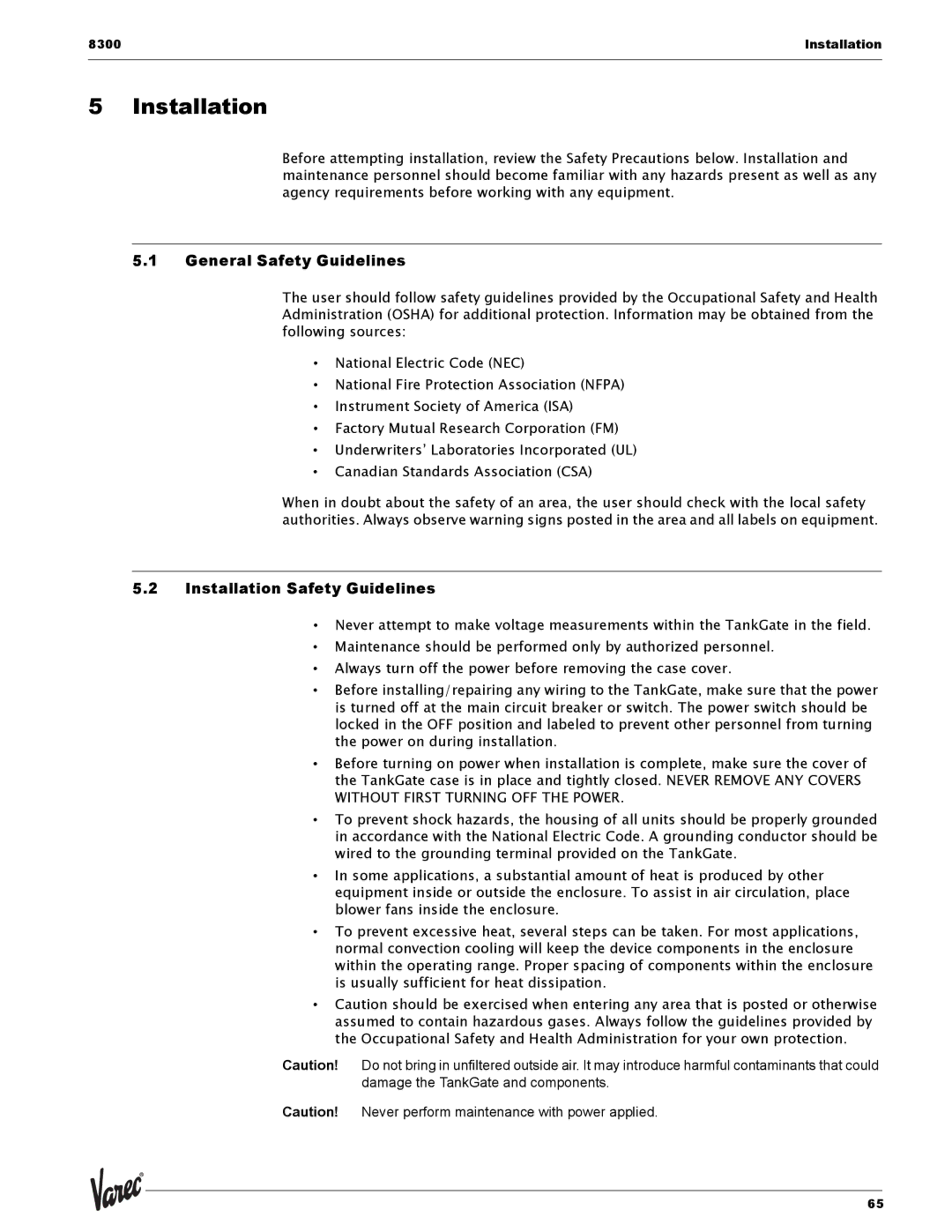
8300 | Installation |
|
|
5 Installation
Before attempting installation, review the Safety Precautions below. Installation and maintenance personnel should become familiar with any hazards present as well as any agency requirements before working with any equipment.
5.1General Safety Guidelines
The user should follow safety guidelines provided by the Occupational Safety and Health Administration (OSHA) for additional protection. Information may be obtained from the following sources:
•National Electric Code (NEC)
•National Fire Protection Association (NFPA)
•Instrument Society of America (ISA)
•Factory Mutual Research Corporation (FM)
•Underwriters’ Laboratories Incorporated (UL)
•Canadian Standards Association (CSA)
When in doubt about the safety of an area, the user should check with the local safety authorities. Always observe warning signs posted in the area and all labels on equipment.
5.2Installation Safety Guidelines
•Never attempt to make voltage measurements within the TankGate in the field.
•Maintenance should be performed only by authorized personnel.
•Always turn off the power before removing the case cover.
•Before installing/repairing any wiring to the TankGate, make sure that the power is turned off at the main circuit breaker or switch. The power switch should be locked in the OFF position and labeled to prevent other personnel from turning the power on during installation.
•Before turning on power when installation is complete, make sure the cover of the TankGate case is in place and tightly closed. NEVER REMOVE ANY COVERS WITHOUT FIRST TURNING OFF THE POWER.
•To prevent shock hazards, the housing of all units should be properly grounded in accordance with the National Electric Code. A grounding conductor should be wired to the grounding terminal provided on the TankGate.
•In some applications, a substantial amount of heat is produced by other equipment inside or outside the enclosure. To assist in air circulation, place blower fans inside the enclosure.
•To prevent excessive heat, several steps can be taken. For most applications, normal convection cooling will keep the device components in the enclosure within the operating range. Proper spacing of components within the enclosure is usually sufficient for heat dissipation.
•Caution should be exercised when entering any area that is posted or otherwise assumed to contain hazardous gases. Always follow the guidelines provided by the Occupational Safety and Health Administration for your own protection.
Caution! Do not bring in unfiltered outside air. It may introduce harmful contaminants that could damage the TankGate and components.
Caution! Never perform maintenance with power applied.
65
